Thai baht is the legal currency of Thailand, and the currency code is THB
The unit is "baht", which is pronounced as "ba" in English
Exchange rate
1 RMB (CNY) ≈ 4.65 Thai baht (THB)
Note: For reference only, the current exchange rate shall prevail.
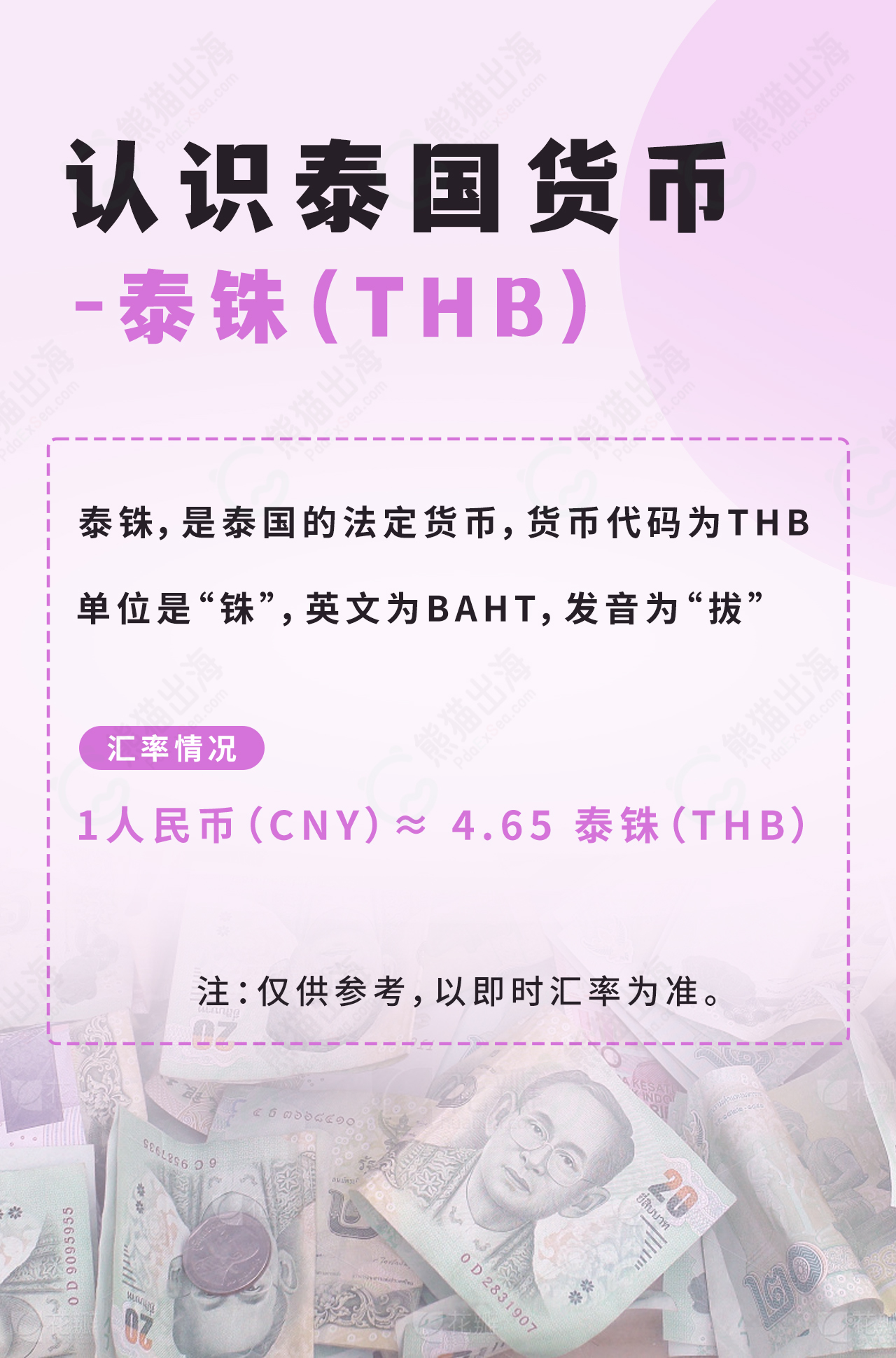
Thai Baht Coins
The main Thai Baht coins in circulation now are 1, 2, 5, 10 baht, 25 and 50 satang.
The back of the coin is King Bhumibol of Thailand, and the front is usually a famous temple in Thailand, such as the front of the 1 baht is the Golden Buddha Temple, the front of the 5 baht is the Marble Temple, and the front of the 10 baht is the Thai Arun Temple.
Because the face value of 25 and 50 satang is too small, it is relatively rare in the market, but it has a certain collection value. .
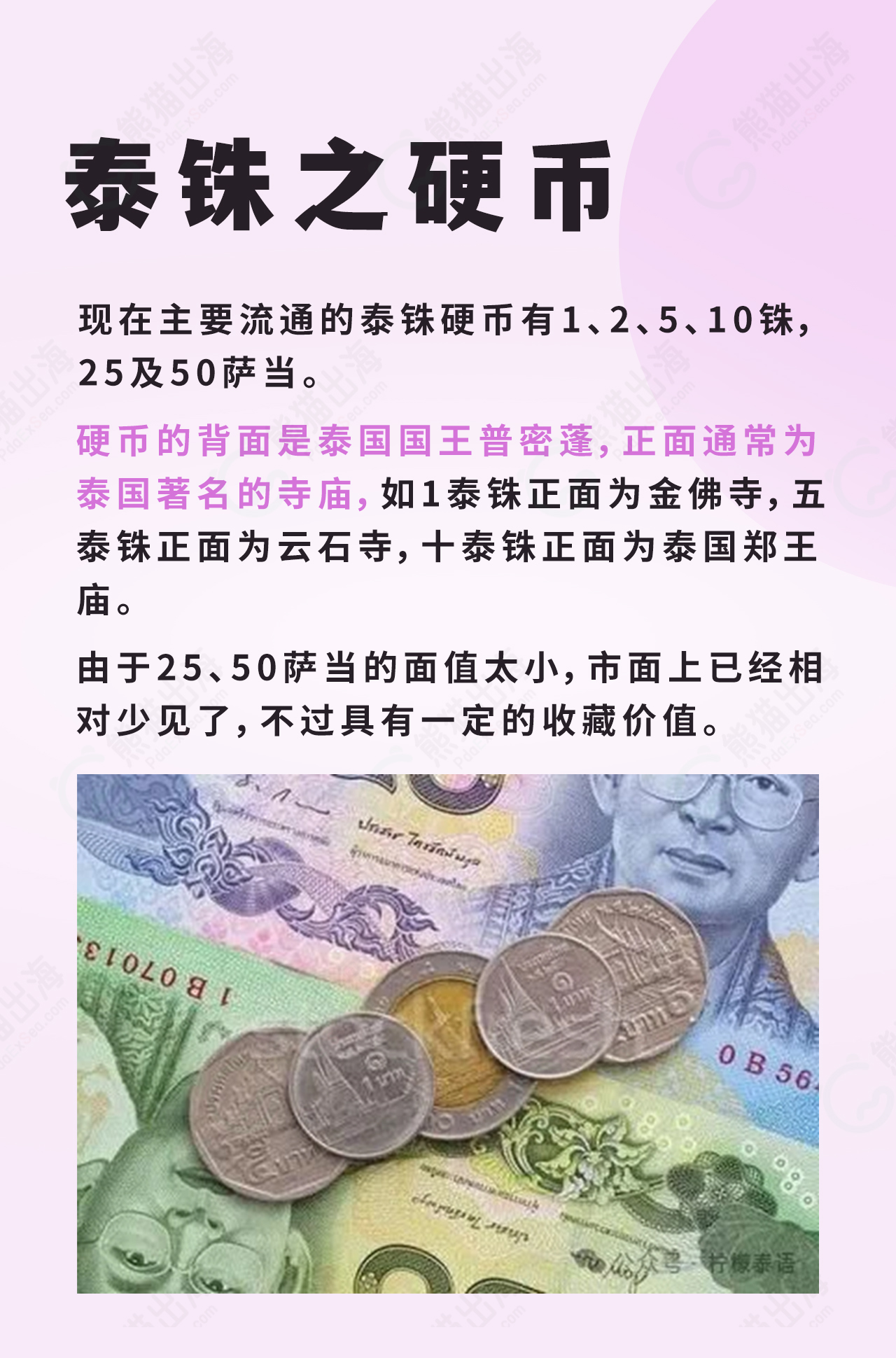
Baht Banknotes
The most commonly used banknotes in Thailand are 20, 50, 100, 500 and 1000 baht.
Currently, the main circulating banknotes are the 17th series of Thai baht issued by Thailand in 2018, printed with the head of King Rama X Maha Vajiralongkorn.
Placing a wallet with Thai baht banknotes in the back pocket of pants is considered disrespectful to the King of Thailand, because when sitting down, it will press the King's portrait, and trampling on banknotes is considered disrespectful to the King.
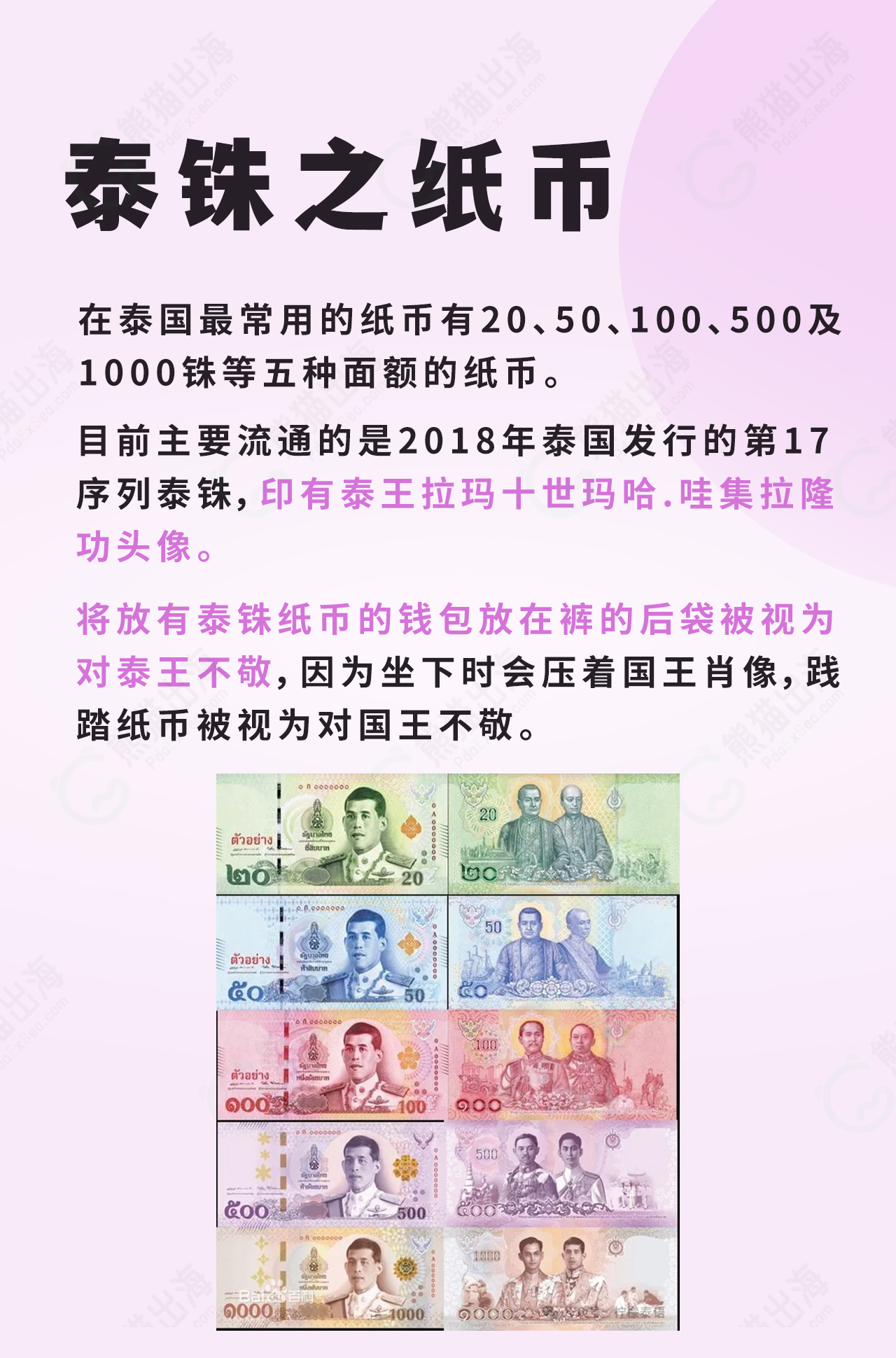
Thailand Tipping Culture
Thailand is a country of tipping. Tipping is common in the local area, but it is not necessary.
Most high-end hotels and restaurants will add a 10% service charge to the bill.
It should be noted that when tipping, do not give coins, because coins are usually given to beggars. It is recommended to use banknotes to show respect.
Generally speaking, the minimum tip is 20 baht.
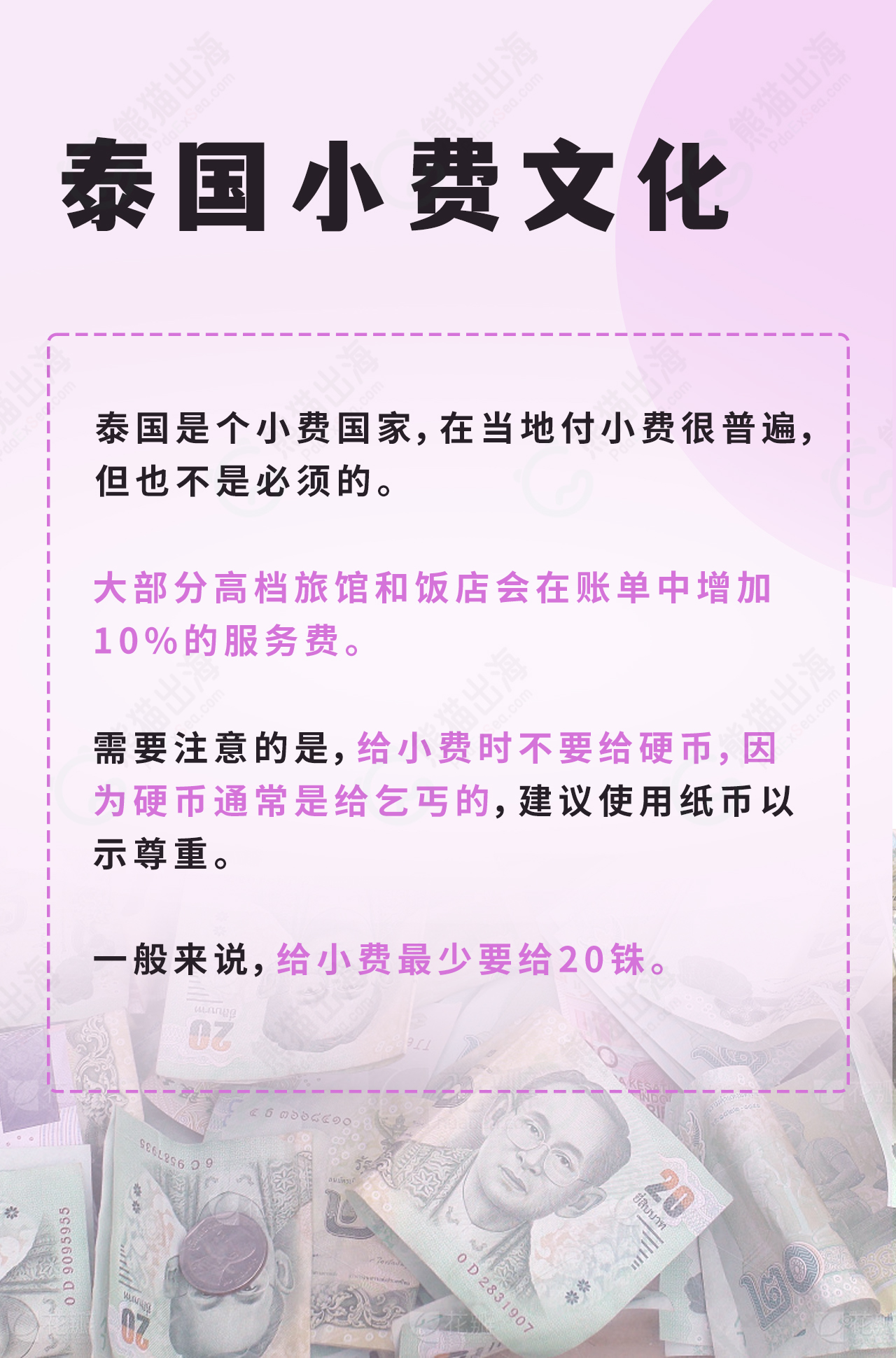
Thai Baht Exchange
(1) Domestic Exchange
You can make an appointment to exchange at the Bank of China in China, or exchange US dollars first and then exchange them locally in Thailand.
(2) Local Exchange
Renminbi can be directly exchanged into Thai baht at banks and foreign exchange points in Thailand. Please bring your passport when exchanging.
You can also use China UnionPay cards to withdraw cash from ATMs in Thailand. Banks in Thailand usually charge a certain fee for direct withdrawals using China UnionPay cards.
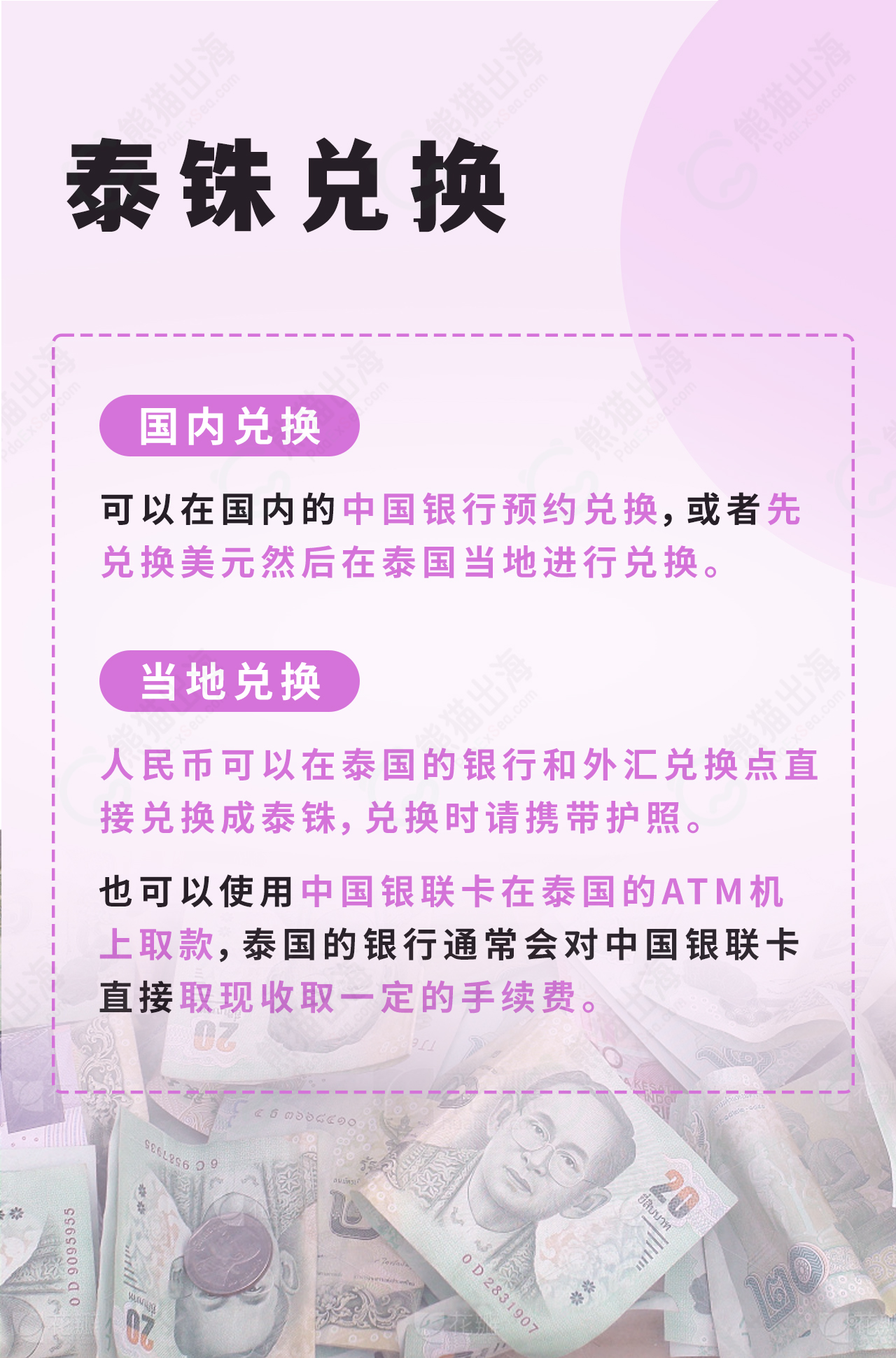
Payment methods in Thailand
(1) Cash
Cash payment is still the mainstream payment method in Thailand. It is necessary to carry cash in Thai baht with you
(2) UnionPay/credit card
Debit cards with the "UnionPay" logo (only applicable to some merchants), international credit cards with "VISA" and "MASTER" logos
(3) Electronic payment
Alipay and WeChat (most cities' convenience stores, supermarkets, restaurants, some rail transit, etc.)
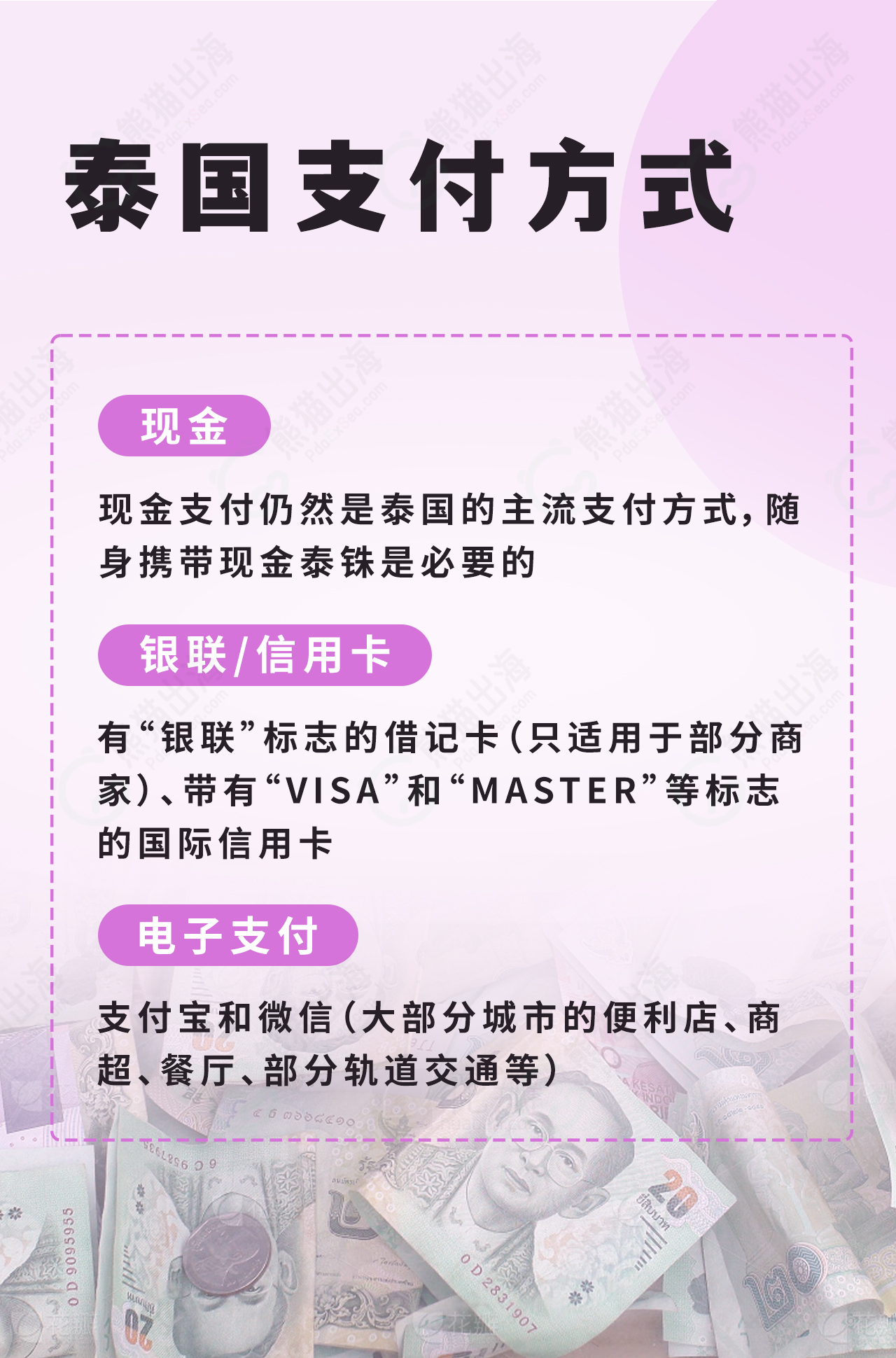
For more Southeast Asian investment information, please consult PDAEXSEA professional consultants。


